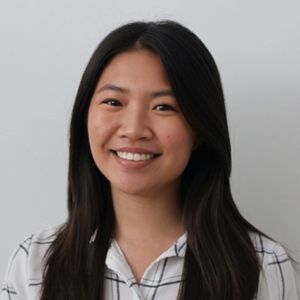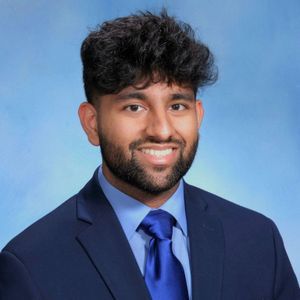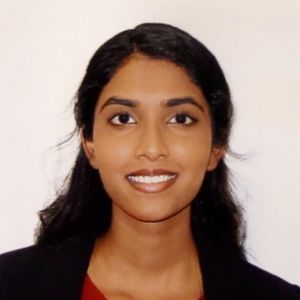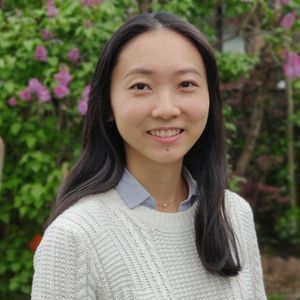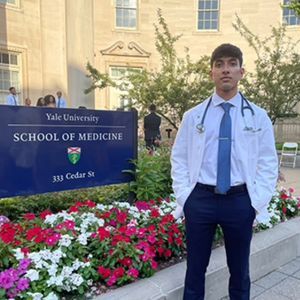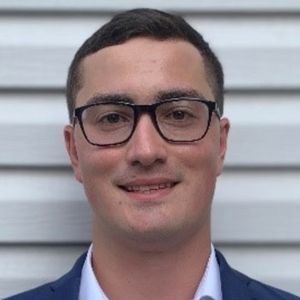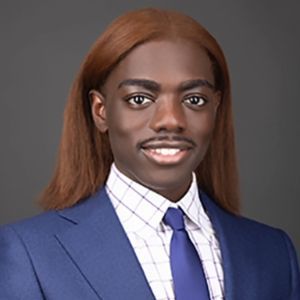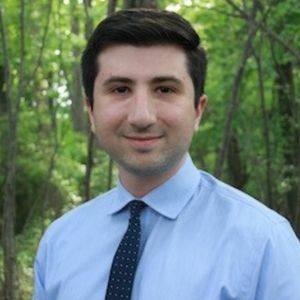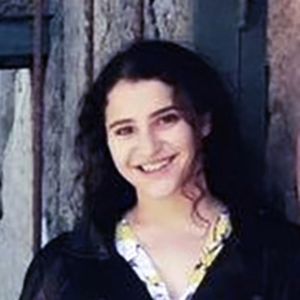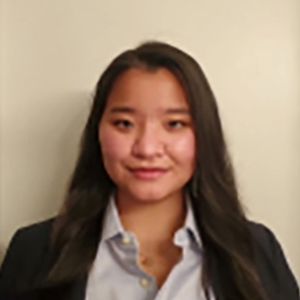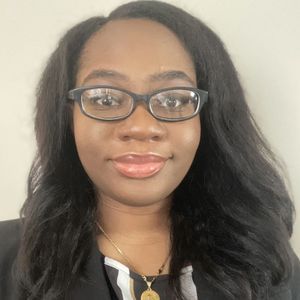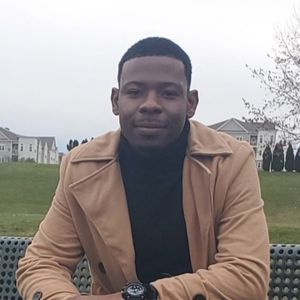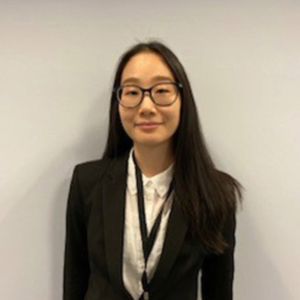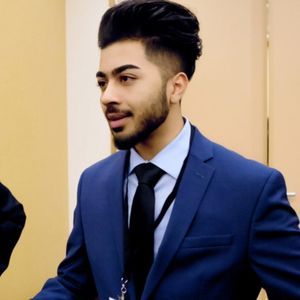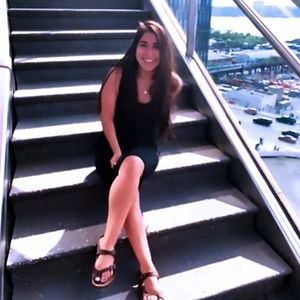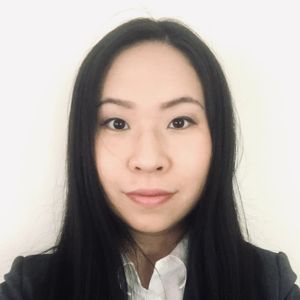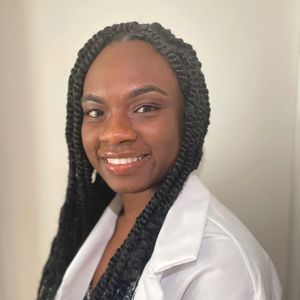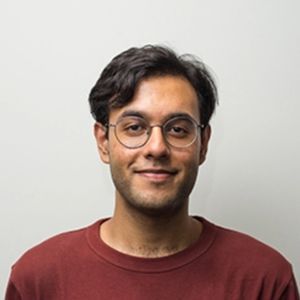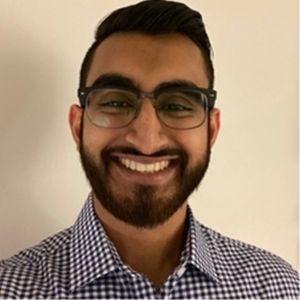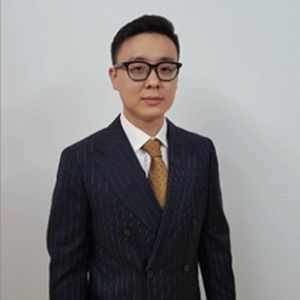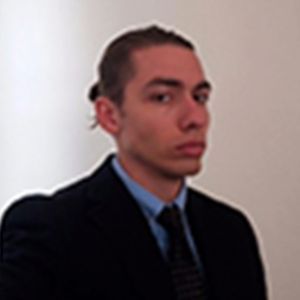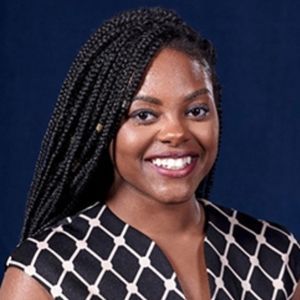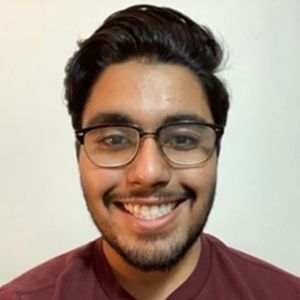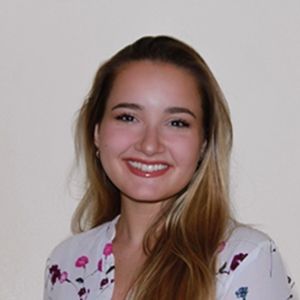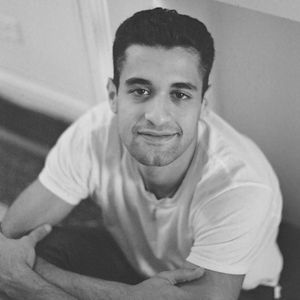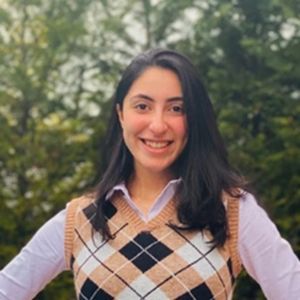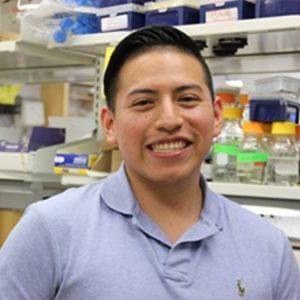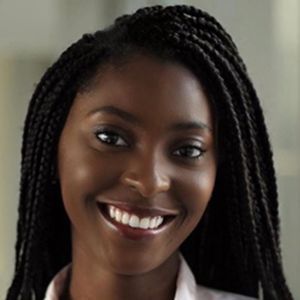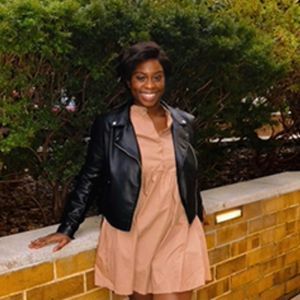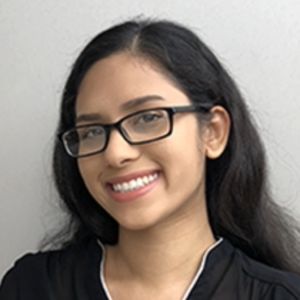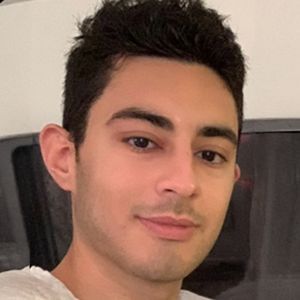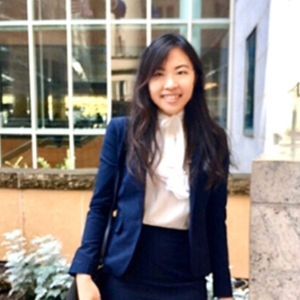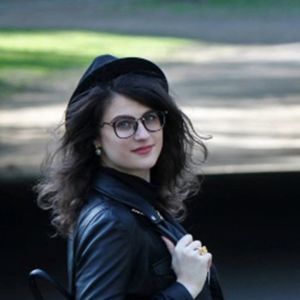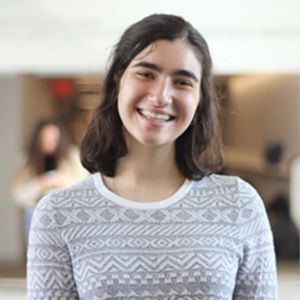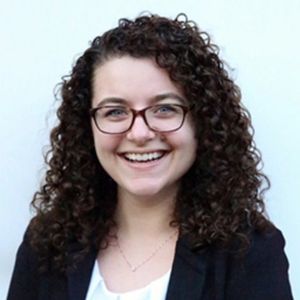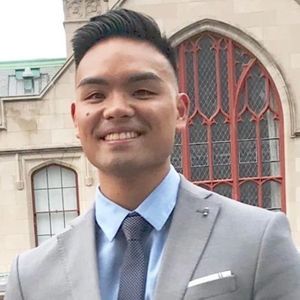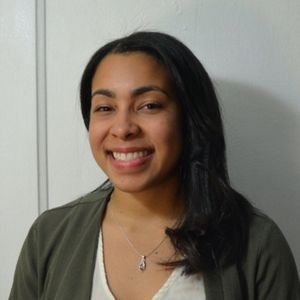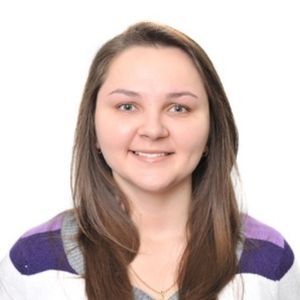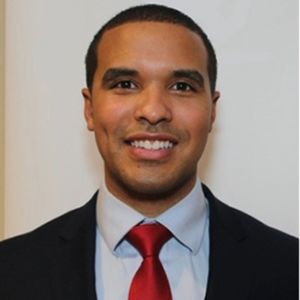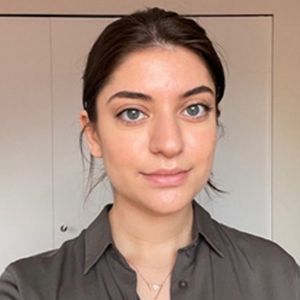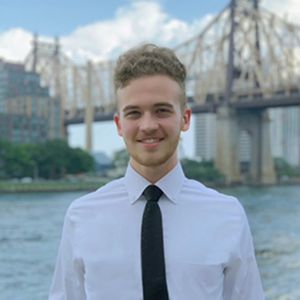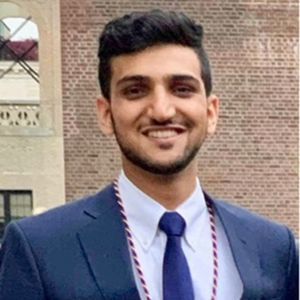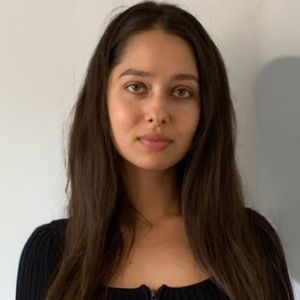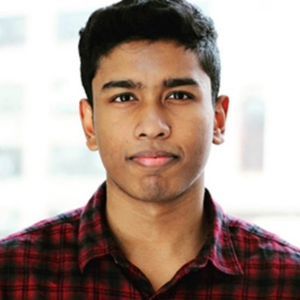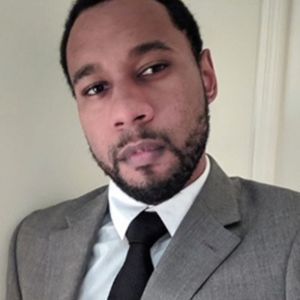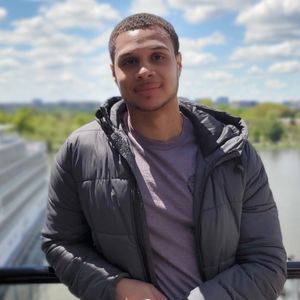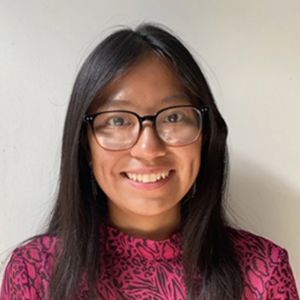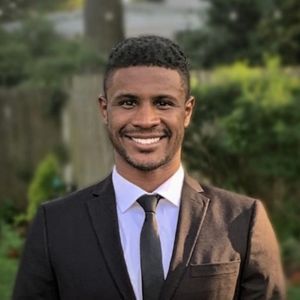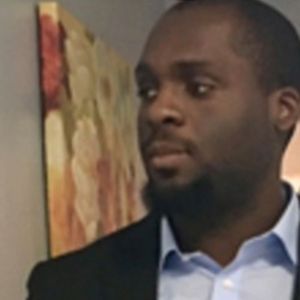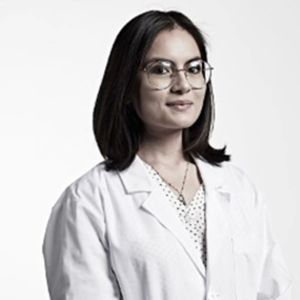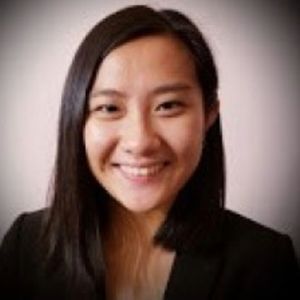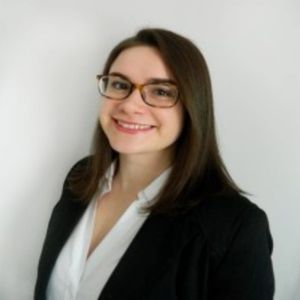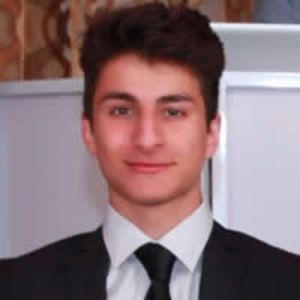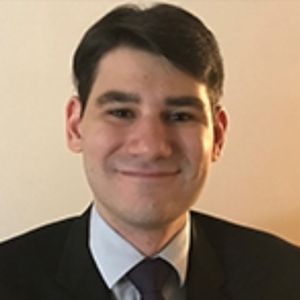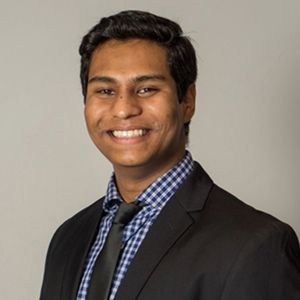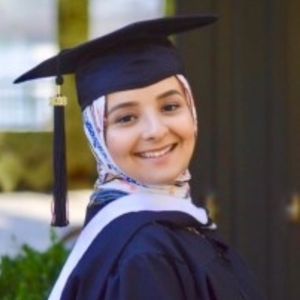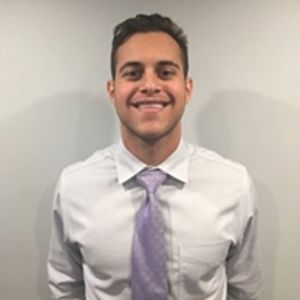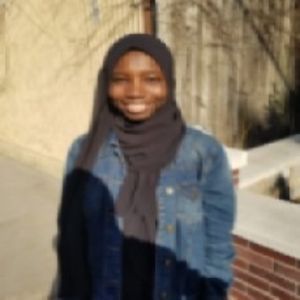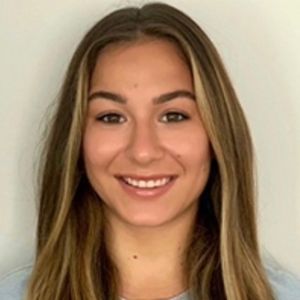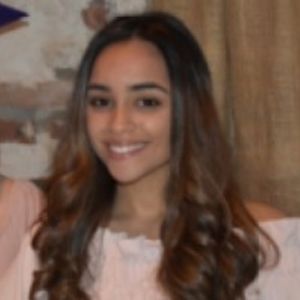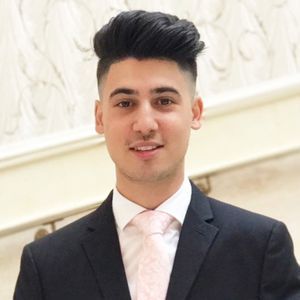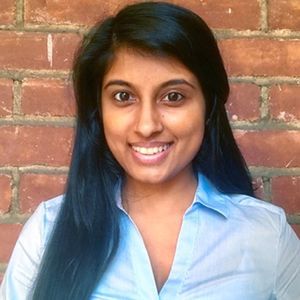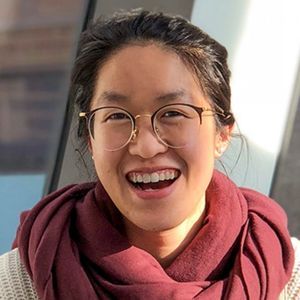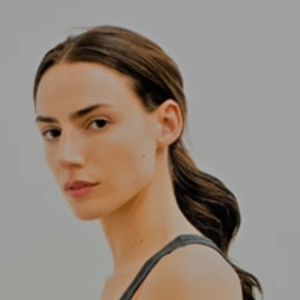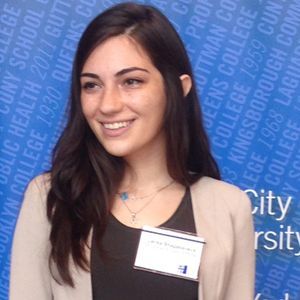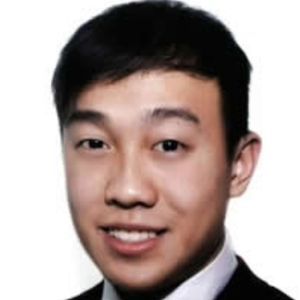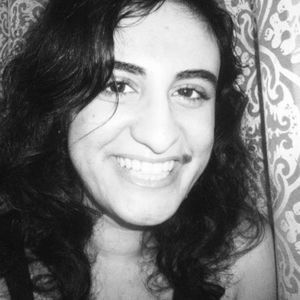2025 Matriculants
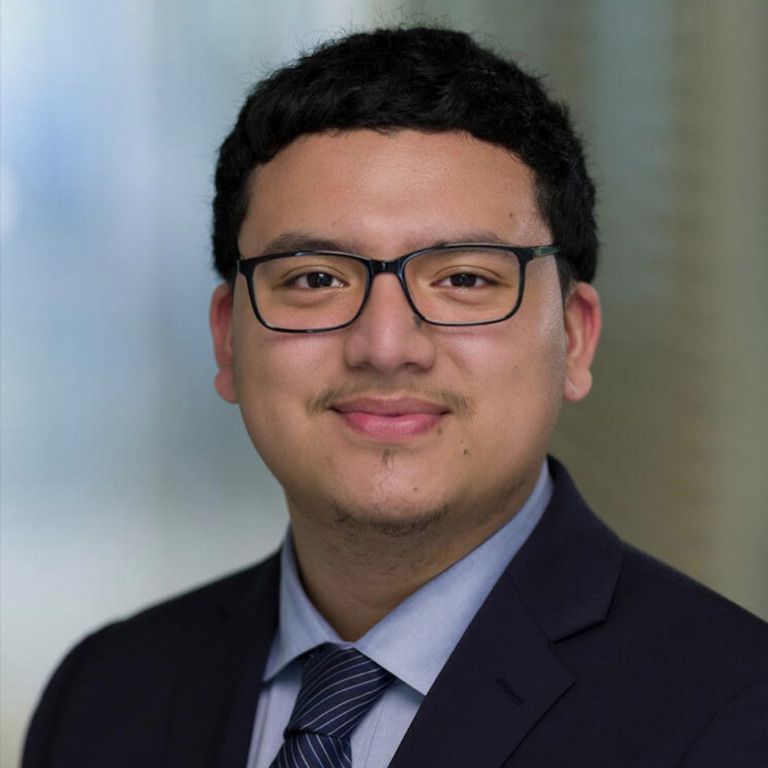
Name: Stevens Patino
Major: Biological Sciences
Minor: N/A
Overall GPA: 3.75
Graduation Year: 2023
Matriculation Year: 2025
Q: Which school will you be attending?
A: Harvard Medical School
Q: What drew you to this particular health field?
A: What began as a childhood curiosity about medicine grew into a clear mission to improve health outcomes, particularly in underserved communities. My personal, clinical, and research experiences have solidified this commitment and motivated me to pursue medicine to address both the individual needs of patients and the broader systemic challenges in healthcare.
Q: What extracurricular activities did you participate in?
A:
Research:
- Research Assistant in pediatric orthopedic surgery at Columbia Pediatrics Orthopedic/NewYork-Presbyterian
- Travelers Summer Research Fellowship Program at Weill Cornell Medicine
- Research Assistant with the Davis Lab/Institute of Translational Genomic Medicine at Morehouse School of Medicine
- Laboratory Technician at the International Center for the Study of Breast Cancer Subtypes at Weill Cornell Medicine
- Research Intern at the Center for Surgery and Public Health, Brigham and Women’s Hospital/Harvard Medical School
- Participated in research conferences and symposiums such as the American Association for Cancer Research, LMSA NE, National LMSA, AMEC, and New England Science Symposium
Clinical:
- Shadowed at multiple hospitals across NYC
- Clinical volunteer at the Columbia Pediatrics Orthopedic/NewYork-Presbyterian
- Heart to Heart Volunteer at Weill Cornell Medicine
Community Service/Extracurriculars:
- Executive board member of Hunter College Latino Medical Student Association
- Intern and Instructor at Bronx Oncology Living Daily
- Co-founding Director of Bronx Health Prospects
- Volunteer and MCAT tutor with Bronx Community Health Leaders
- William Worral Scholar Program at Mayo Clinic
- Harvard HOPE Medical Scholars
Q: How many hours on average did you spend studying for your courses per week?
A: I spent around 10-15 hours studying during exam weeks.
Q: Did you use a test prep course? What resources did you use to prepare?
A: I did not use a test prep course; I self-studied. For content review, I used the Kaplan MCAT books, and for practice and active studying, I relied on UWorld, Anki, and the AAMC question bundle. I used Blueprint and AAMC full-length exams to prepare under test conditions.
Q: Did you take a GAP year? If so, why?
A: I took two gap years. During that time, I worked to support my family and took the opportunity to develop and complete several projects I had started after college.
Q: What do you consider to be your strengths in your application?
A: I consider my greatest strength in my application to be my ongoing growth as a leader, researcher, and representative of underserved communities, and being able to navigate and catalyze change at both the grassroots and institutional levels. These endeavors were grounded in my background and core mission, which helped me construct a strong narrative for my application. I also had a very steep upward trend in my GPA.
Q: Did you apply nationally?
A: I mainly applied to medical schools in the Northeast.
Q: How did the Pre-Health Advising Office help you achieve your goals?
A: The Pre-Health Advising Office was instrumental in helping me achieve my goal of getting into medical school. I initially reached out quite late and felt uncertain about the steps required to secure the committee letter and a successful application cycle. From our very first meeting, the office guided me on the right path, consistently supported me throughout the internal committee letter process, and advocated for me in pursuing external opportunities. I had numerous one-on-one meetings with Kemile Jackson, whose guidance and encouragement I deeply appreciate. I highly recommend connecting with the Pre-Health Advising Office as early as possible in your journey.
Q: What advice do you have for future applicants?
A: My advice to future applicants is to act as a leader. Identify gaps, address them, and implement systematic change. This makes every experience/extracurricular stand out and highlight something profound about you. For the application, remember to reflect on your “why medicine”?. Write in depth about how each experience has exposed you to new aspects of medicine, strengthened your interest in medicine, and/or informed your future goals. Never shy away from who you are and where you come from. Best of luck!
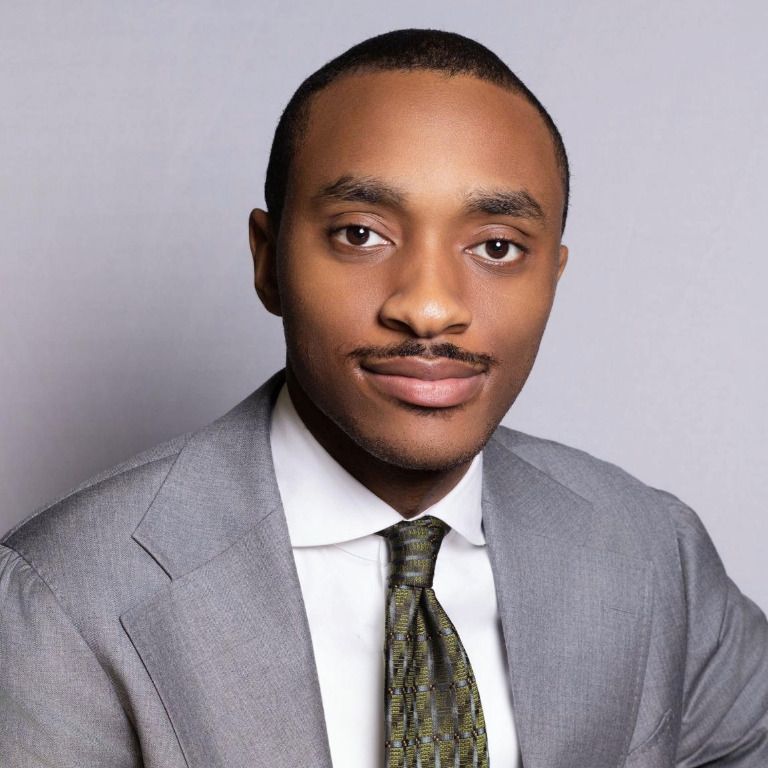
Name: Matthew Neil
Major: Biological Sciences and Special Honors (Thomas Hunter Honors Program)
Minor: N/A
Overall GPA: 3.57
Graduation Year: 2023
Matriculation Year: 2025
Q: Which school will you be attending?
A: SUNY Downstate College of Medicine
Q: What drew you to this particular health field?
A: Throughout my life, I have had an interest in science, and over the years, that interest blossomed into an interest in healthcare and medicine. Through experiences within my local nursing home, my family, volunteering experiences, and witnessing the health struggles of my close loved ones and church members, I realized that I desired to be an advocate and beacon for patients as a physician. Medicine is a unique and rewarding field in which we have the opportunity to be part of the healing process in an individual’s life.
Q: What extracurricular activities did you participate in?
A:
During my time at Hunter College, I found myself involved in many different extracurricular activities. Activities that were medicine-related, and activities that were not and were just genuine interests of mine. I am quite involved in my church ministry and activities, which allows me to have that constant involvement and anchor with my religious beliefs and my community. Some examples of activities I was involved in while at Hunter include:
- Summer Program for Underrepresented Students (SPURS), Columbia University - Research
- Program for Individualized Mentorship Education Solutions (PrIMES), Weill Cornell Medical Center - PrIMES mentee
- New York Presbyterian-Weill Cornell Medical Center: Volunteer within the Neurological Critical Care Unit
- New York Boulevard Pharmacy - Pharmacy Technician
- Neil Imagery LLC - Lead Photographer
Q: How many hours on average did you spend studying for your courses per week?
A: The hours I spent studying for my courses per week were dependent on the material and specific coursework. The pre-medical courses, such as Biology, Chemistry, Physics, and Organic Chemistry, required more studying time and more time utilizing practice questions. Throughout my undergraduate studies, I felt that I had a good balance between taking other courses that interested me, such as music, which is a passion of mine. Additionally, having been a part of the Thomas Hunter Honors Program, I had the privilege of taking many classes in the humanities discipline that I found to be intriguing. It is challenging to provide a quantifiable number of hours per week I spent studying due to the vast variability, but I know that I placed a strong emphasis and priority on studying areas in which I was weak.
Q: Did you use a test prep course? What resources did you use to prepare?
A: As participants of the Early Medical Education (EME) Program at SUNY Downstate, we received many resources to assist us in preparing for the MCAT. For example, we received resources such as Kaplan books along with the associated question bank, Blueprint, Uworld, Khan Academy, and AAMC. I also utilized ANKI, which helped me in reinforcing content areas, particularly in the Psychology/Sociology section, which has more of a memorization burden than the other content areas on the MCAT.
Q: Did you take a GAP year? If so, why?
A: Yes, I took two gap years. During the first gap year, I continued to study for the MCAT and hone in on my interests and passion for medicine. After my third attempt at the MCAT, I was privileged to be accepted to the Bridges to Medicine Program: Master’s in Physiology at SUNY Downstate through the College of Medicine. The Bridges Program provided me with the necessary skills and knowledge on how to ultimately succeed as a medical student and as a physician in the future. The path to medicine is not always linear, but the journey is worth it, so in however many gap years you may take or need, don’t lose sight of the goal!
Q: What do you consider to be your strengths in your application?
A: I believe the strengths in my application were my ability to show the components of being a well-rounded individual with interests outside of medicine, and how that tied into my passion for medicine. Your character and personality need to shine through your application. When this happens, and you get to the interview portion, it allows the interviewer to get a confirmation of what type of person you are. Hence, it is so important to be your authentic and genuine self in your application and ultimately in your interview.
Q: Did you apply nationally?
A: No, I only applied to SUNY Downstate through the Early Medical Education (EME) Program.
Q: How did the Pre-Health Advising Office help you achieve your goals?
A: The Pre-Health Advising Office helped me achieve my goal of getting into medical school by supporting me in my endeavors to become a physician. Specifically, providing me with information and resources regarding research opportunities, how to write personal statements, and advice on how to properly interview and advocate for myself were integral to my achievement of receiving an acceptance to medical school. The Pre-Health Advising Office at Hunter College believes in its applicants, so you must continue to believe in yourself.
Q: What advice do you have for future applicants?
A: Continue to believe in yourself, and trust that all things will work out well and for your good. Having faith and believing in the process and journey is the most important thing you can do. Kemile would often tell me to “keep swimming”, and I would also like to share that with whoever may be reading this. Never give up on your dreams and passion!
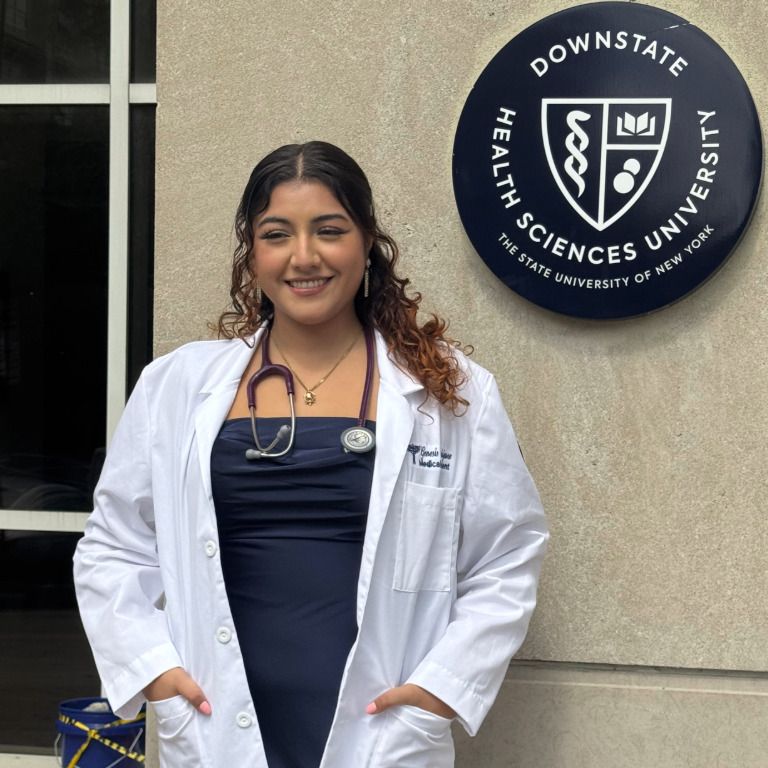
Name: Genesis Rodriguez
Major: Medical Lab Sciences BS
Minor: Sociology
Overall GPA: 3.56
Graduation Year: December 2022
Matriculation Year: 2025
Q: Which school will you be attending?
A: SUNY Downstate College of Medicine
Q: What drew you to this particular health field?
A: Ever since I was young, I told everyone who listened that I wanted to be a doctor. My favorite days would be when I’d get to see my pediatrician, a bright, compassionate woman who seemed to have all the answers. Multiple health issues affecting most of my family members left me feeling confused and hopeless. The desire to be like my doctor as a child coupled with the feeling of being useless to my family during adolescence drove me to grow a strong curiosity for medicine. Undergrad is where I started to realize the magnitude of such a commitment. As an MLS major, I took classes similar to medical school material and found a part time job in the field. This formative experience confirmed a career as a laboratory technician was not for me, further solidifying my choice in pursuing medicine. Through my firsthand experience as an underrepresented minority pre-medical student, as well as my extracurriculars, I discovered how I can use this passion to improve the livelihood of those in underserved communities, like those of my family, friends, and neighbors.
Q: What extracurricular activities did you participate in?
A:
- LMSA+ Hunter College - Social Media Manager, then President
- Catholic Medical Mission Board x Hunter College - Treasurer
- Exploring Health Careers SUNY Downstate - Summer Intern
- SPRINTER Summer Research Program - Summer Student Researcher
- NYP-Weill Cornell PRIMES Mentorship Program - Mentee and Shadowing
- Columbia Vagelos College of Physicians and Surgeons GET-UPP Mentorship Program - Mentee
- Meyer Cancer Center and Englander Institute for Precision Medicine Weill Cornell - Intern
- Euler Microbiology Lab - Undergraduate Honors Researcher
- CARE Mount Sinai Volunteer Department - Volunteer
- National Black Leadership Commission on Health - Volunteer
Q: How many hours on average did you spend studying for your courses per week?
A: 20-25 hours/week, not necessarily an exact measure, depended on which courses took precedence that day/week
Q: Did you use a test prep course? What resources did you use to prepare?
A: Most of my MCAT studying was done using resources provided by EME such as the Kaplan test course, TestingSolutions for CARS, and Blueprint practice exams. I also used Khan Academy videos (free), Anki (free) and UWorld (very much not free).
As a visual learner, I would look for secondary materials found online from sources like the MCAT Reddit sub and YouTube. Some YouTube channels I recommend checking out: Informing Future Doctors (IFD), Professor Eman, Professor Dave Explains, Sketchy Learning, Medicosis Perfectionalis, and The Organic Chemistry Tutor (helpful since Gen Chem).
Q: Did you take a GAP year? If so, why?
A: Yes. I needed an extra semester to complete my major and honors requirements. This also gave me time to perfect my EME application. EME is a two-summer program so the year in between these summers was used to work part-time and study as much as possible.
Q: What do you consider to be your strengths in your application?
A: My commitment to increasing my knowledge and readiness as a pre-medical student is evident in the numerous mentorship opportunities I sought out throughout my undergraduate career. Being the first to pursue medicine in my family, these resources have been invaluable in providing me with the tools necessary for medical school acceptance.
Q: Did you apply nationally?
A: No.
Q: How did the Pre-Health Advising Office help you achieve your goals?
A: The Pre-Health Advising Office has been the spot to go to in times of hardship, time of celebration, and times where you need a friendly face and an extra boost of encouragement when medical school seems like an impossible goal. The advising office has been great for checking up on all the necessary requirements needed for success.
Q: What advice do you have for future applicants?
A: Having a timeline and goals for yourself is helpful. Planning ahead doesn’t always work out, however, and that is when you need to reevaluate your timeline, check in with your professors, advisors, mentors and the Pre-Health office to see how you can adjust your plans and get back on track. The goal is to get into medical school, it’s okay if it takes longer than usual. Focus on what you can control.
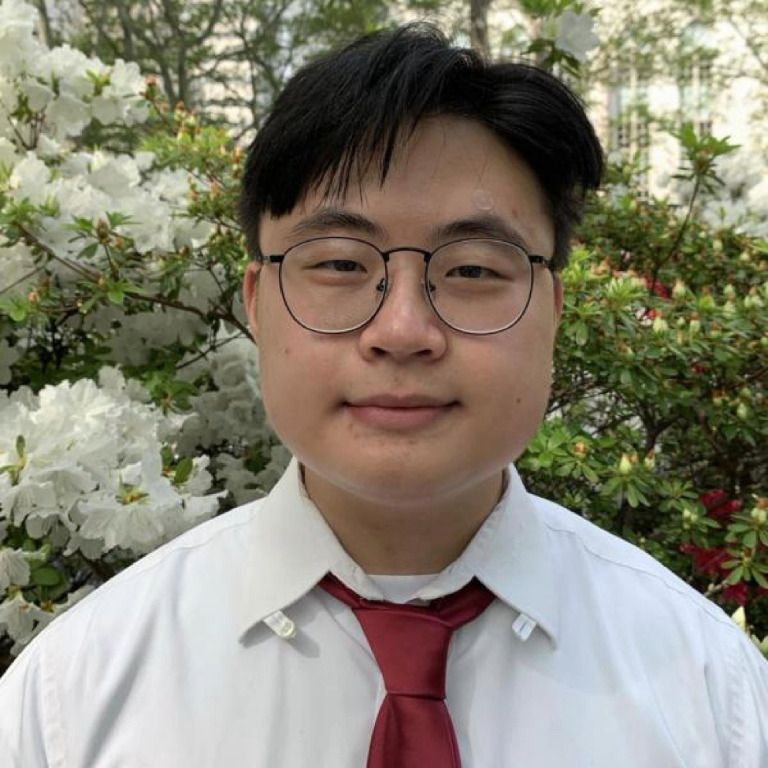
Name: Htet Ng
Major: Biology
Minor: Sociology
Overall GPA: 4.00
Graduation Year: 2024
Matriculation Year: 2025
Q: Which school will you be attending?
A: Weill Cornell Medical College
Q: What drew you to this particular health field?
A: My personal experiences that I had growing up sparked my initial interest in medicine. Once I had the opportunity while at Hunter to explore the different aspects of the field through my various experiences, it reinforced that initial interest.
Q: What extracurricular activities did you participate in?
A:
Research:
- Undergraduate Research/Research Assistant: Liu Lab, Rockefeller University
- Clinical Research: The Feinstein Institutes for Medical Research
- Poster Presentation at ABRCMS
Medical/Clinical:
- Volunteer: NYP Queens
- Shadowing: Emergency Medicine, Palliative Medicine, Outpatient Primary Care Clinic
Non-Clinical:
- Hunter-RockEDU Peer Mentor Fellow: RockEDU, Rockefeller University
- Scholar Peer Leader: Yalow Honors Scholars Program
- Mentor: Pre Health Mentoring Initiative (PHMI)
- Volunteer: Kehilat Sephardim Food Pantry
- Volunteer Tutor: Community of Volunteer Educators (COVE)
- Independent Tutoring
- Social Media Chair, Director of Events and Outreach, Vice President—Hunter College APAMSA
Q: How many hours on average did you spend studying for your courses per week?
A: 10 Hrs/wk, but would jump to 20-30Hrs/wk during exam week
Q: Did you use a test prep course? What resources did you use to prepare?
A: I did not use a test prep course. Instead, I used a combination of the Kaplan MCAT books, Jack Westin, UWorld, Anki, and the official AAMC material.
Q: Did you take a GAP year? If so, why?
A: I took a gap year to make sure that my application was ready and not rushed. I also wanted to give myself time to travel and to spend more time with friends/family.
Q: What do you consider to be your strengths in your application?
A: I believe the biggest strength in my application was presenting my authentic self. Through the story that I conveyed in my personal statement combined with my meaningful, multi-year experiences, I was able to demonstrate my genuine interest in medicine. This authenticity combined with my strong academic success helped me to stand out.
Q: Did you apply nationally?
A: No, I mainly applied in the Northeast and Midwest. I did not apply to any schools on the west coast.
Q: How did the Pre-Health Advising Office help you achieve your goals?
A: From the start of my freshman year, the Pre-Health Office never sugarcoated what it takes to get into medical school. Their honesty kept me accountable at every step of the journey, from my General Chemistry classes to the MCAT and throughout the application process. Kemile and Nina, especially, played an integral to my success. Their support in drafting my personal statement, refining my work and activities, and preparing for interviews made a huge difference in my application cycle. I truly believe I would not be where I am today without them. At the end of the day, they only want to see you succeed so don’t be afraid to reach out to them!
Q: What advice do you have for future applicants?
A: The application cycle and the journey to the application process is long, stressful, and mentally exhausting. It’s important to stay organized, keep track of the important deadlines, and submit your primary and secondary applications as early as possible. But just as important is taking care of your mental health. Please take care of yourself and make time to do things that you enjoy. This process really is a marathon and not a race, but at the end of the day, you will be a doctor!
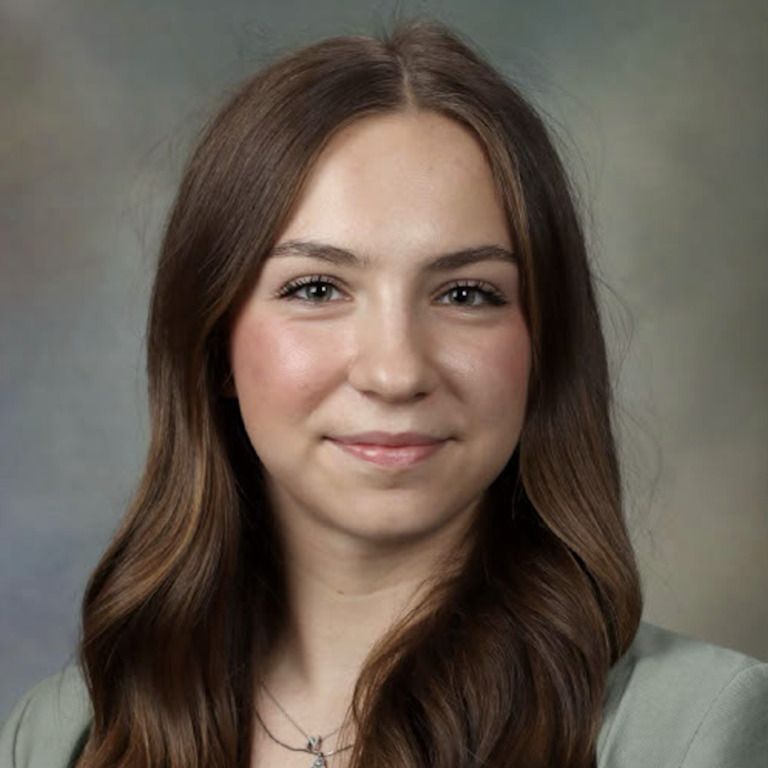
Name: Natalia Pozdnyakova
Major: Chemistry with a Biochemistry Concentration
Overall GPA: 4.0
Graduation Year: 2025
Matriculation Year: 2025
Q: Which school will you be attending?
A: University of Rochester School of Medicine and Dentistry
Q: What drew you to this particular health field?
A: Early on, I knew that my future lies in the field of medicine and dedicating my life to helping others. Throughout my journey, as both a student and a patient, I was exposed to physicians and the realities of clinical care. Through these experiences I learned three important things about the field. First, medicine is really challenging and you are expected to understand complex information and apply it in ways that directly affect someone’s health and as a result, the quality of their life. Second, the field requires a life long learner. Medicine is constantly changing and I find the challenge of adapting to new technologies and treatments exciting. Lastly, as a clinician you make a direct impact on your patients, but as a physician you are uniquely positioned to make extensive, indirect impacts on patients and also their family, your community, and even globally. As a future physician, I hope that my impact will be limitless.
Q: What extracurricular activities did you participate in?
A: I was an Organic Chemistry TA for CHEM 222/224, a physics tutor at the Skirball Science Learning Center, a mentee and then a mentor for the Hunter College Pre-Health Mentoring Initiative, a pre-health ambassador and a Student Life volunteer at Macaulay, and a JHealth member at Hunter. Outside of school, I became an advising fellow at Matriculate to low-income/high-achieving college applicants. I was also the Department Chief of the Shadowing Team for Hearts for Health, an online shadowing program and an Intergenerational Intern at DOROT, facilitating intergenerational programs that connected older adults and teens. As well, I worked for a third party dental billing company. I participated in the UPS and UPS+ programs through the Mayo Clinic, where I was able to shadow physicians and gain professional development. At Memorial Sloan Kettering Cancer Center, I performed research on breast cancer imaging modalities, presenting my findings at ABRCMS. I also volunteered in their Urgent Care and pediatric oncology department. In the Trauma Surgery Department in NYC Health+Hospitals/Bellevue, I performed research on complicated appendicitis and shadowed physicians. At Hunter College, I joined Dr. Anton Oliynyk’s lab to work on research on intermetallic compounds.
Q: How many hours on average did you spend studying for your courses per week?
A: Per week, I spent around 10-20 hours studying for my courses.
Q: Did you use a test prep course? What resources did you use to prepare?
A: I did not use a prep course because my acceptance to URSMD’s early assurance program did not require a MCAT score.
Q: Did you take a GAP year? If so, why?
A: No, I did not take a gap year. By being admitted through the early assurance program, I decided to start medical school directly after my undergraduate education.
Q: What do you consider to be your strengths in your application?
A: I consider the main strength of my application to be how well rounded it was. I demonstrated a strong academic foundation in the sciences, consistent involvement in clinical and benchwork research, and meaningful service experiences.
Q: Did you apply nationally?
A: N/A
Q: How did the Pre-Health Advising Office help you achieve your goals?
A: The Pre-Health Advising Office played a very key role in helping me achieve my goals. I met with my advisor at least once a semester to make sure I was on the right track when it came to course work and extracurricular activities. When it came down to applying, the office helped me refine every aspect of my application, including my personal statements, activity descriptions, and mock interviews.
Q: What advice do you have for future applicants?
A: Be authentic to yourself! It can be easy to compare yourself to other applicants and peers, but your focus should be on building your own path. With every experience, find the joy in what you do. Your passion and determination will shine through, I promise. Through it all, make sure you have an amazing group of friends, mentors, and advisors that will help and support you along the way. It is impossible to walk this journey alone.
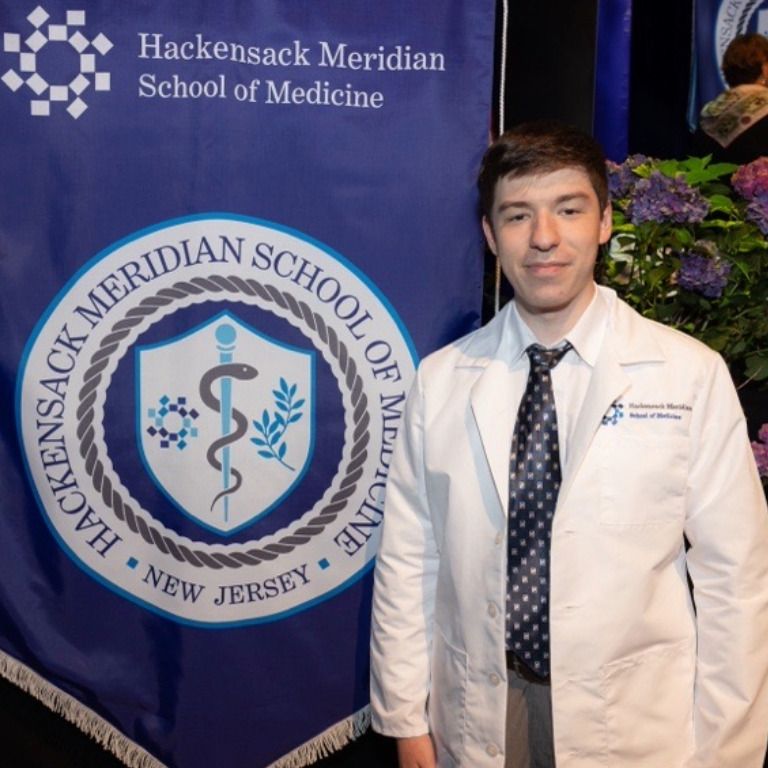
Name: David Sharer
Major: Chemistry (Biochemistry Concentration)
Minor: Mathematics
Overall GPA: 4.0
Graduation Year: 2025
Matriculation Year: 2025
Q: Which school will you be attending?
A: Hackensack Meridian School of Medicine
Q: What drew you to this particular health field?
A: I was initially drawn to medicine due to my deep interest in the biochemical sciences that developed throughout middle school and high school. I was also inspired by the excellent patient care that I witnessed while volunteering at a surgical recovery room during high school. All of my experiences while at Hunter College, which include volunteering in underserved communities, gaining clinical experience, and conducting research, truly reinforced my desire to apply complex scientific principles to providing the highest quality of care to struggling populations.
Q: What extracurricular activities did you participate in?
A:
- Clinical intern at Community Health Initiatives Health Center (through CUNY Spring Forward)
- Hunter College Red Cross Secretary/Center for Recovery and Wellness Food Pantry Head Volunteer
- Research assistant at the Mandë Holford Lab
- Pain management physician shadowing
- Dolciani Center Calculus III, Vector Analysis, and Ordinary Differential Equations Tutor
- Weill Cornell Medicine Heart-to-Heart Community Outreach Program patient navigator
- Hunter College Orientation Leader
- Mount Sinai CARE emergency department volunteer/mentor
- Yalow Scholar Peer Leader
- Research Presentations: ABRCMS 2024, Hunter College Undergraduate Research Conference, Rockefeller University 20th Annual Tri-Institutional Chemical Biology Symposium, Chemistry Honors Thesis
Q: How many hours on average did you spend studying for your courses per week?
A: During a typical week, I would spend around 5-10 hours studying for courses, while studying for closer to 15-20 hours during a week with multiple exams.
Q: Did you use a test prep course? What resources did you use to prepare?
A: I used MCAT test prep materials such as Blueprint, AAMC practice tests/question packs, and UWorld. Out of all these resources, I would especially like to highlight the resourcefulness of UWorld. Closer to my exam date, I prioritized taking and reviewing full-length practice exams through Blueprint and the AAMC.
Q: Did you take a GAP year? If so, why?
A: No, I did not take a gap year.
Q: What do you consider to be your strengths in your application?
A: I believe I was able to effectively maintain a cohesive theme throughout my medical school application: connecting my passion for both non-clinical and clinical community service to the impact I aspire to have on the medical field.
Q: Did you apply nationally?
A: I only applied to medical schools in the Northeast.
Q: How did the Pre-Health Advising Office help you achieve your goals?
A: Frequent meetings with Kemile were integral to optimizing the quality of my application. Her thorough review of components such as my personal statement, activities, and secondaries truly helped me express the best possible version of myself that I wanted medical school admissions committee members to see. I would also like to thank Nina for assisting me with interview preparation through her mock interview sessions. Lastly, I would like to thank Dr. Klein for advising me throughout my pre-medical journey and for her strong support of my candidacy through the committee letter.
Q: What advice do you have for future applicants?
A: I believe it is crucial to have a theme throughout your application. The applicant with meaningful experiences that build upon each other is more likely to be successful than the applicant who fills out all 15 activities in the work/activities section with no clear story tying those activities together. Personally, I placed a strong emphasis on both clinical and non-clinical community service. Additionally, it is important to take the application process one step at a time. Applying to medical school is a long journey with many ups and downs, so I would implore future applicants to set aside some time for self-care during this challenging process.
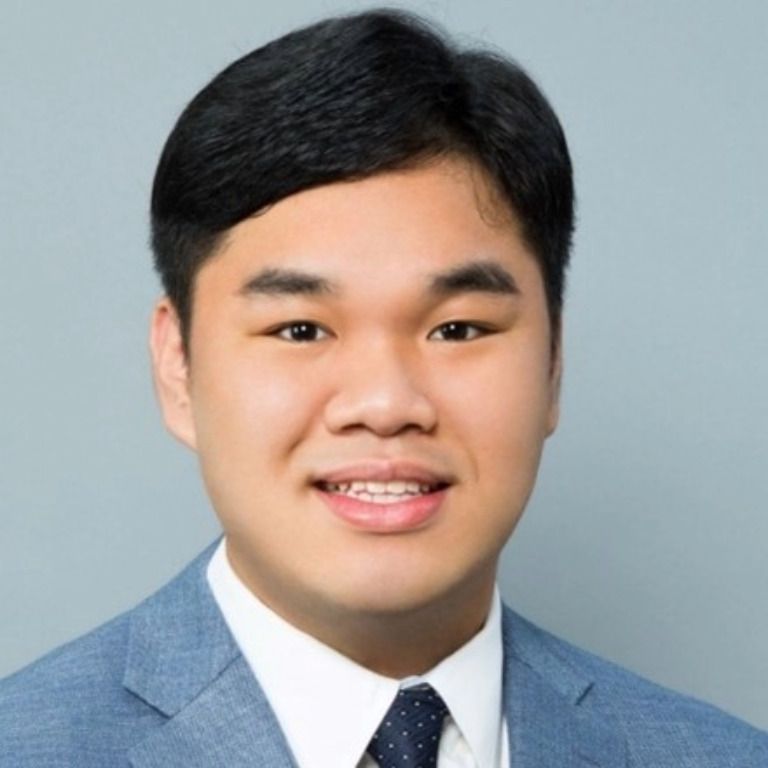
Name: Hyun Min Kang
Major: Biochemistry
Minor: N/A
Overall GPA: 3.86
Graduation Year: 2022
Matriculation Year: 2025
Q: Which school will you be attending?
A: Uniformed Services University of Health Sciences (USUHS)
Q: What drew you to this particular health field?
A: I was drawn to military medicine because it is a challenging field which one could deliver good care in bad places that most of the population will not be in. Medicine and military share many similarities – teamwork, leadership, agility, and making informed decisions in dire condition. I feel privileged and honored that I am going to heal those people who put their lives at risk and guide them to live healthy and fulfilling lives.
Q: What extracurricular activities did you participate in?
A:
- Associate Researcher at Icahn School of Medicine at Mount Sinai
- Volunteering at the emergency department at Veterans Affairs
- Volunteering at my church’s free clinic, as well as Sunday school and band
- Home health aide
- SUNY Downstate Explore Health Careers (EHC)
- Hunter Pre-health Mentor Initiative
- Teaching assistant in biochemistry class
Q: How many hours on average did you spend studying for your courses per week?
A: I spent 10-14 hours studying for my classes. I read lecture slides and textbooks the day before the lecture to help myself prepare for upcoming classes. I also joined a studying group consisting of 2-3 people at max to study together at library, support each other, and prepare for exams.
Q: Did you use a test prep course? What resources did you use to prepare?
A: I self-studied for my MCAT. I utilized Jack Westin’s free MCAT daily questions, UWorld, anki, and AAMC materials.
Q: Did you take a GAP year? If so, why?
A: I took three gap years because I wanted to spend more time in research and clinical works to solidify my conviction of pursuing medicine. I also wanted to stay in New York City to explore more places and music venues.
Q: What do you consider to be your strengths in your application?
A: My strengths are my dedication to service and my leadership. Because I have always been interested in military medicine, I started to volunteer at veterans’ affairs hospital to learn what it is like to interact with those who served. I demonstrated my leadership experience by highlighting my experience as a club president, teaching assistant in biochemistry class, and associate researcher in my lab. I also emphasized my talent in music.
Q: Did you apply nationally?
A: I applied to all public schools in New York State, and many schools located in the east coast. I applied for 11 DO schools and 21 MD schools.
Q: How did the Pre-Health Advising Office help you achieve your goals?
A: Nina has always supported me from the first day at Hunter. She helped me numerous times with editing application statements and mock interview. When I was struggling, Nina assured me that everything would work out as long as I kept pushing it through.
I understand that strict deadlines and rules set forth by the pre-health office may seem overwhelming to some, but I can attest all of these are fundamental in building self-discipline, which will take you very far in the medical career.
Q: What advice do you have for future applicants?
A:
- Never ever give up.
- A short pencil is better than a long memory. When you are doing extracurricular activities, journal what you learned and how you felt about it. This will become so handy when you fill out AMCAS applications and write personal statements.
- Continue to stay in touch with all the people you work with.
- Quality > Quantity. Participate in extracurricular activities that you are actually passionate about. Do not do it for the sake of checking off the boxes. ADCOMs can see it from miles away from your writing.
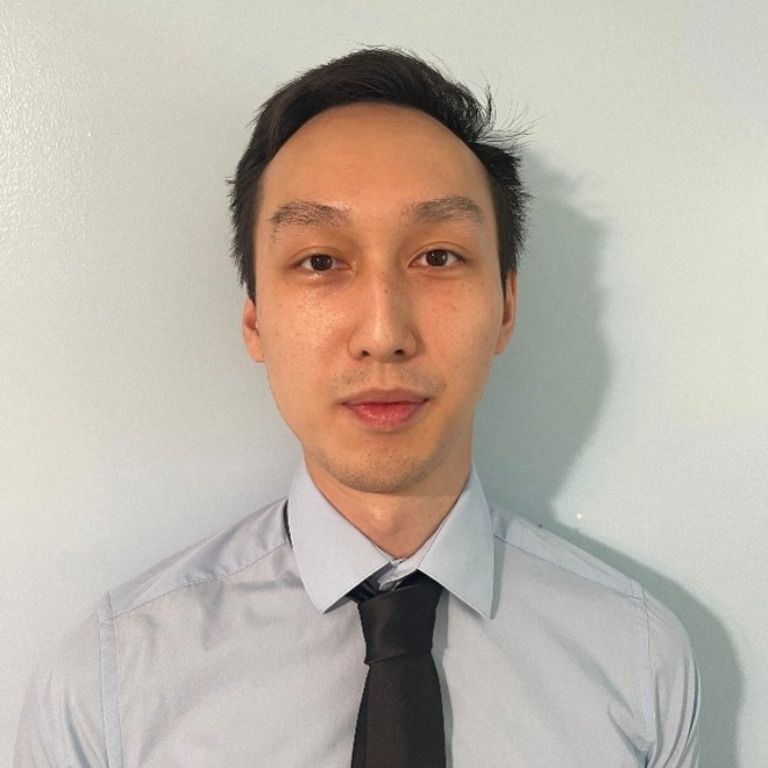
Name: Darvin Huang
Major: Biology & Thomas Hunter Honors Program
Major: Biochemistry
Minor: Economics
Overall GPA: 3.86
Graduation Year: 2023
Matriculation Year: 2025
Q: Which school will you be attending?
A: Renaissance School of Medicine at Stony Brook University
Q: What drew you to this particular health field?
A: My introduction to medicine was through my parents as I translated for them growing up. In high school, wanting to explore the field, I volunteered at a hospital, where I was exposed to the clinical environment and spoke with medical staff. I started on the pre-health track at CUNY Hunter College and through further clinical, research and other opportunities, I have solidified my passion for medicine and helping improve healthcare access.
Q: What extracurricular activities did you participate in?
A: I started off in my freshman year as a volunteer research assistant position at Hunter College. Due to COVID, my first clinical experiences started in my junior year as a medical scribe. I also participated heavily in the Pre-Health Mentoring Initiative as a peer-mentor and later, as the Administrative Coordinator. In my gap year, I worked as a laboratory technician.
Q: How many hours on average did you spend studying for your courses per week?
A: 10 hours/week, but more for test periods.
Q: Did you use a test prep course? What resources did you use to prepare?
A: I used Blueprint, Uworld, Jack Westin, and AAMC. There are a lot of free resources online, but Uworld and AAMC are the essential paid resources.
Q: Did you take a GAP year? If so, why?
A: I took a gap year to strengthen my experiences and prepare for medical school.
Q: What do you consider to be your strengths in your application?
A: The strengths in my application were my strong gap year experience, combined with diverse research and clinical experiences. I was able to connect these experiences in a cohesive story to succinctly convey who I am to medical school. My minor in economics and experience in health economics helped me speak meaningfully on the healthcare system in my application and interviews.
Q: Did you apply nationally?
A: I applied nationally with a heavy emphasis on the New England area.
Q: How did the Pre-Health Advising Office help you achieve your goals?
A: During the application process, Kemile and Nina helped proofread my primary application and interview. Beyond that, they have been very supportive through helping me pursue different opportunities and providing advice throughout my pre-health journey.
Q: What advice do you have for future applicants?
A: I advise future applicants to focus on the big picture. It is easy to get caught up in the day-to-day or semester-to-semester moments, whether academics or extracurriculars. What is more important is to stay true to yourself and approach the pre-health path in your own way. Many obstacles on the way to becoming a physician may seem daunting and stressful, but these experiences set the foundation that shapes you into the physician that you aspire to be.
Beyond that, I would recommend involving yourself in meaningful, long-term activities. Show your commitment to your extracurriculars and that will reflect clearly in the way you are able to speak about it in the application and interviews. Furthermore, do not be afraid to ask for help, whether it is through peer-mentorship or the pre-health office.
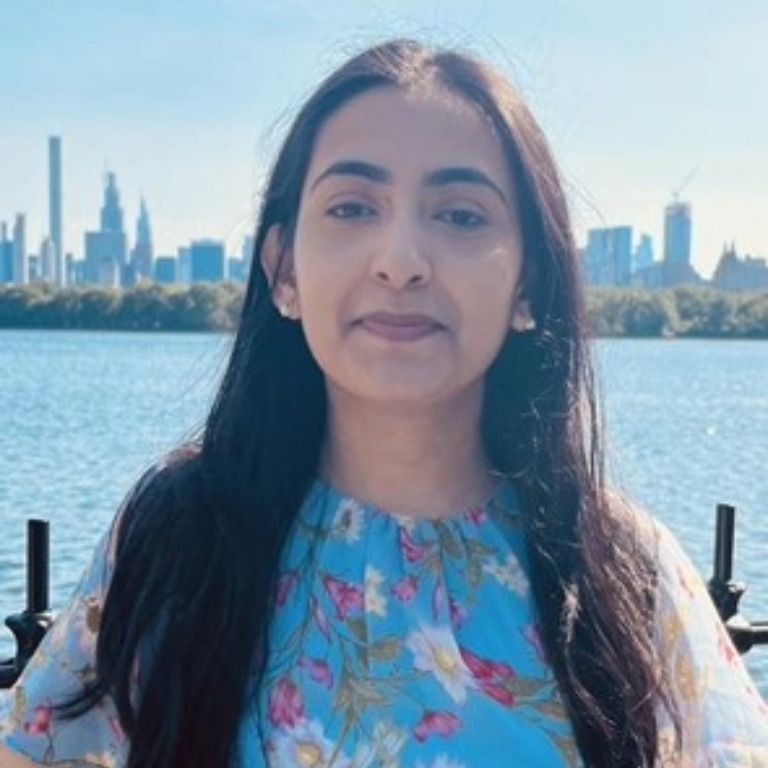
Name: Afrin Ansary
Major: Biology & Thomas Hunter Honors Program
Minor: Theatre
Overall GPA: 3.88
Graduation Year: 2022
Matriculation Year: 2025
Q: Which school will you be attending?
A: Weill Cornell Medical College
Q: What drew you to this particular health field?
A: My interest in healthcare sparked when my brother fell ill in our village in Bangladesh, where access to medical care was limited. After moving to the United States soon after, I often translated for my family in hospitals and observed similar disparities affecting underserved communities. These experiences inspired me to pursue medicine as a way to combine my curiosity about the human body with a commitment to research, community engagement, and personalized clinical care.
Q: What extracurricular activities did you participate in?
A:
Clinical:
- Medical Scribe at CityMD
- Medical Assistant/Scribe at a private cardiology practice
- Volunteer at the ER Department of Montefiore Wakefield Campus
- Volunteer at the Pre-Op/Post-Op and Inpatient Nursing Unit at Montefiore Moses
- E-shadowing through Medical School Headquarters
Research:
- Summer Cancer Research Institute (Temple University/Fox Chase Cancer Center, and Hunter College)
- Dr. Olorunseun Ogunwobi’s Cancer Lab at the Belfer Research Building
- The Microbe Directory Project
Non-Clinical:
- SAT Math Coach and later Access Coach at Let’s Get Ready
- Tutor through the College Mentorship Initiative (Co-founder)
- Co-lead of the Instructional Support Team at the Community of Volunteer Educators (COVE)
- Clerical Assistant at the Biology Department
- Student Senate member
- General member of the University Blood Initiative club
Q: How many hours on average did you spend studying for your courses per week?
A: It really depended on the course and my schedule! But for hard sciences (Orgo I/II, Physics I/II, Bio I/II), I usually spent about 10–12 hours a week studying. I took detailed notes during lectures, went to office hours to ask questions, and reviewed my notes for 1–2 hours a day. During exam weeks, I studied for about 15-20+ hours a week.
Q: Did you use a test prep course? What resources did you use to prepare?
A: No, I did not use a test prep. I self-studied for the MCAT. I used Khan Academy videos, AK lectures, Jack Westin, Blueprint practice exams, UWorld, and the AAMC MCAT official prep bundle.
Q: Did you take a GAP year? If so, why?
A: Yes, I took multiple gap years! Throughout college, I volunteered at a local hospital, but my responsibilities were fairly limited. I wanted to gain more hands-on experience, so I worked as a medical scribe and an assistant after graduation. I also needed time to prepare for the MCAT! Ultimately, I took the time to ensure this was the right field for me and to approach the application cycle with clarity and confidence.
Q: What do you consider to be your strengths in your application?
A: My strengths were my extensive clinical experience, strong letters of recommendation, and the ability to support my statements/responses with clear evidence. I only requested professors and physicians who knew me personally, not just academically, which probably made my letters more genuine. I also tied my personal and professional experiences together to clearly answer “why medicine,” and I think that came through perfectly.
Q: Did you apply nationally?
A: I mainly applied to schools in the Northeast because I wanted to stay close to my family. However, I did apply to a couple of schools in Michigan and Chicago because their stats, mission, and values matched well with my background.
Q: How did the Pre-Health Advising Office help you achieve your goals?
A: The pre-health department has been incredibly supportive throughout my medical school application process. As the first in my family to pursue this path, I often felt overwhelmed, but Kemile helped ease that anxiety. She regularly checked in, shared resources like workshops and mentorship opportunities, and offered extra meetings to keep me on track. Her encouragement gave me the confidence I needed to move forward.
Bobby’s mock interviews were also essential. His feedback and guidance helped me refine my responses and approach my interviews with confidence. I wouldn’t have communicated as effectively without that preparation.
Q: What advice do you have for future applicants?
A:
- Pursue activities you genuinely enjoy. Your passion will naturally shine through in your writing and interviews, making your story more authentic and relatable. It also keeps you happy and motivated throughout this challenging process!
- Keep a journal of your daily experiences, particularly those involving patient interactions!!! These reflections are invaluable when answering questions about what shaped your desire to pursue medicine and why you would be a good fit.
- Believe in yourself and avoid comparing yourself to others. Focus on your own path, stay true to your passions, and be ready to tell your story. If you're committed and work hard, the only one who can stand in your way is you.
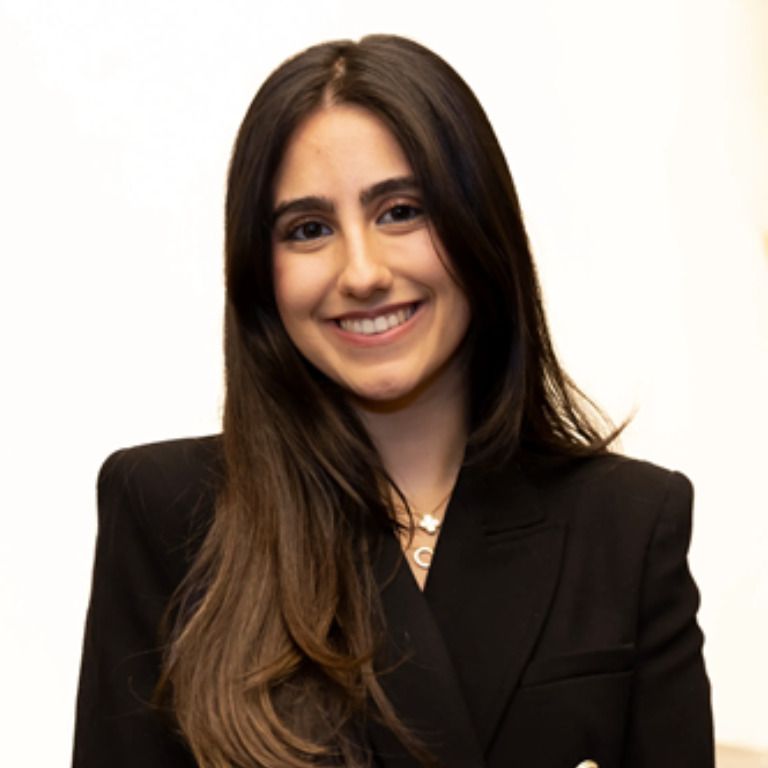
Name: Francesca Jereis
Major: Philosophy
Minor: Chemistry, Biological Sciences
Overall GPA: 3.79
Graduation Year: 2024
Matriculation Year: 2025
Q: Which school will you be attending?
A: Georgetown University School of Medicine
Q: What drew you to this particular health field?
A: I have always been inclined toward the STEM fields (philosophy came later in life), but it was not until I experienced a personal health issue that the relevance of science became tangible. This encounter changed my abstract interest into a concrete understanding of its impact on the human body and well-being. Motivated by this experience, I sought out internships and opportunities in healthcare, through which I developed a deeper appreciation for the unique responsibilities entrusted to physicians. There is a profound significance—both ethical and philosophical—in bringing health and wellness to individuals during their most vulnerable moments. It is a responsibility, certainly, but also an extraordinary privilege. There is truly no other profession that so intimately combines scientific expertise with human connection.
Q: What extracurricular activities did you participate in?
A:
Hunter-related activities: Healthcare Accessibility Program (as a apart of WCM’s H2H), Heart at Hunter Club, Doctors Without Borders club, Where Hunter College Speaks Radio, Unibuddy, PHMI, Macaulay Book Club.
Non-Hunter-related: District Leader for the Yonkers Democratic Party, Volunteer for a councilwoman in my city, shadowed a pediatrician, bioethics research at NYU, wet lab research in the Nowak lab at WCM (1 yr volunteer, 1yr paid full time), volunteered in clinical research at NYU, was a medical assistant in a family medicine office.
Q: How many hours on average did you spend studying for your courses per week?
A: Around 40 hours per week.
Q: Did you use a test prep course? What resources did you use to prepare?
A: I used the discounted Blueprint course provided by the pre-health office. This included live classes w/ other Blueprint users, full-length exams, and questions. I utilized all of these. I recommend Blueprint over Princeton (which I briefly used) and Kaplan because I found it the closest to the actual exam.
I used UWorld, Anki (MilesDown deck, and then I created a separate deck for topics I got wrong), and AAMC’s materials (I recommend to start using this about 6-8 weeks from test date as they will be the closes). All very helpful.
Additionally, since I was a Philo major, there were some science topics I didn’t really know and I made a cheat sheet of sorts for those where a flashcard wouldn’t do it justice.
Q: Did you take a GAP year? If so, why?
A: I took one gap year (which I refer to as a growth year). When I first made the decision, it was because I knew I wouldn’t have been ready to apply in junior year (GPA wise, experience wise, time wise for all the writing portions), nor did I want to do the application process whilst in my senior year. Looking back, I also think it was really good for me, my application, and my well-roundness as a student to work in research. I recommend a gap year because it gives you perspective on things, and I think you mature much more when not in school and you’re in a professional setting full time. Additionally, medical school is hard and a lot of work, so to go straight from undergrad is a very big feat where the reward of doing so is minimal.
Q: What do you consider to be your strengths in your application?
A: I had a strong and distinct narrative that I was able to convey very clearly through every stage (primary, secondary, and interviews) and was able to relate it one way or another to most of my schools. I think this speaks to my ability to write and interview very well which can be achieved even if you don’t have a strong basis to begin with.
Q: Did you apply nationally?
A: No, I applied to 34 schools along the East Coast.
Q: How did the Pre-Health Advising Office help you achieve your goals?
A: Throughout undergrad, the Pre-Health Office has guided in what internships I should pursue (and provided those opportunities to me), classes to take, and most importantly, carried my medical school application from start to finish. The deadlines set to complete different parts of the application kept me focused and also ensured I submitted everything early which definitely makes a huge difference in outcomes (interviews/acceptances).
Q: What advice do you have for future applicants?
A: Submit everything as early and as high quality as possible (make drafts upon drafts a few months before May and June), show don’t tell in your writing, seek the advice of upperclassmen, utilize the pre-health office, connect your narrative with the school’s mission, prewrite all your secondaries, send update letters ie keep in touch with your school, call AMCAS w/ any question you have regarding using the system
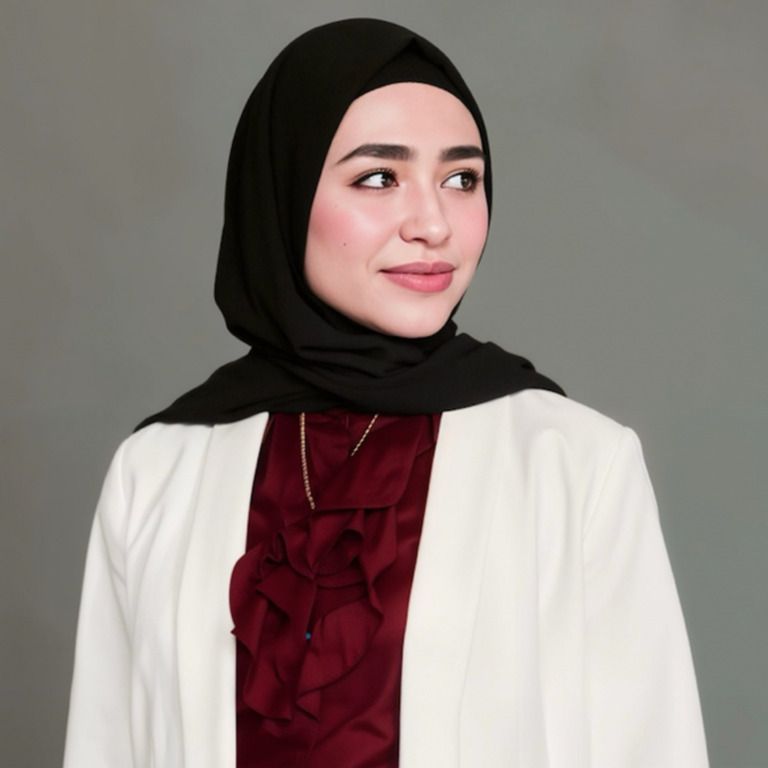
Name: Haya Alkiswani
Major: Biological Sciences
Minor: English
Overall GPA: 4.0
Graduation Year: 2024
Matriculation Year: 2025
Q: Which school will you be attending?
A: Perelman School of Medicine at the University of Pennsylvania
Q: What drew you to this particular health field?
A: My interest in medicine was a culmination of personal experience (my aunt’s breast cancer diagnosis), scientific interest, and extensive clinical exposure with diverse patient populations since high school.
Q: What extracurricular activities did you participate in?
A: I founded a program addressing healthcare inaccessibility for the underserved; was heavily involved in clinical and translational research projects; founded and led the Project HOPE Club (in support of the Project HOPE global non-profit organization); was involved in various clinical experiences at hospitals and a private practice; engaged in shadowing experiences with multiple physicians; led the Heart at Hunter Club (in support of the American Heart Association); participated in community service activities; and pursued my interests in art and creative writing.
Q: How many hours on average did you spend studying for your courses per week?
A: I spent 10-20 hours studying, depending on exam weeks and course load.
Q: Did you use a test prep course? What resources did you use to prepare?
A: I used Blueprint Prep, UWorld, and AAMC!
Q: Did you take a GAP year? If so, why?
A: Yes, I wanted to take my MCAT exam after completing all my pre-medical prerequisite courses. Additionally, I wanted a year to pursue my interests in art, research, and teaching before matriculation into medical school.
Q: What do you consider to be your strengths in your application?
A: I believe that my strengths were my leadership, academic performance, diverse research experiences, long-term clinical exposure, and outside interests in creative writing and art.
Q: Did you apply nationally?
A: Yes, although I primarily applied to schools in the Northeast.
Q: How did the Pre-Health Advising Office help you achieve your goals?
A: Ms. Kemile Jackson and Ms. Nina Ledis provided me with immense academic and professional advice since the start of my freshman year. They have supported me and provided me with invaluable mentorship - responding to inquiries after hours, giving me constructive feedback, editing my essays, and preparing me for interviews. I am incredibly grateful for all the guidance that I received from the Pre-Health Advising Office.
Q: What advice do you have for future applicants?
A:
Understand your personal mission: I recommend having a personal mission statement for yourself. I suggest having a clear understanding of your purpose, goals, and experiences going into the application cycle.
Be authentic and share your story: Personalize your application and present yourself honestly in your primary, secondaries, and on interview day!
Pursue your passions and interests: The admissions committees can tell when you are truly passionate about an experience, hobby, etc. Let that shine through in your written application and interviews!

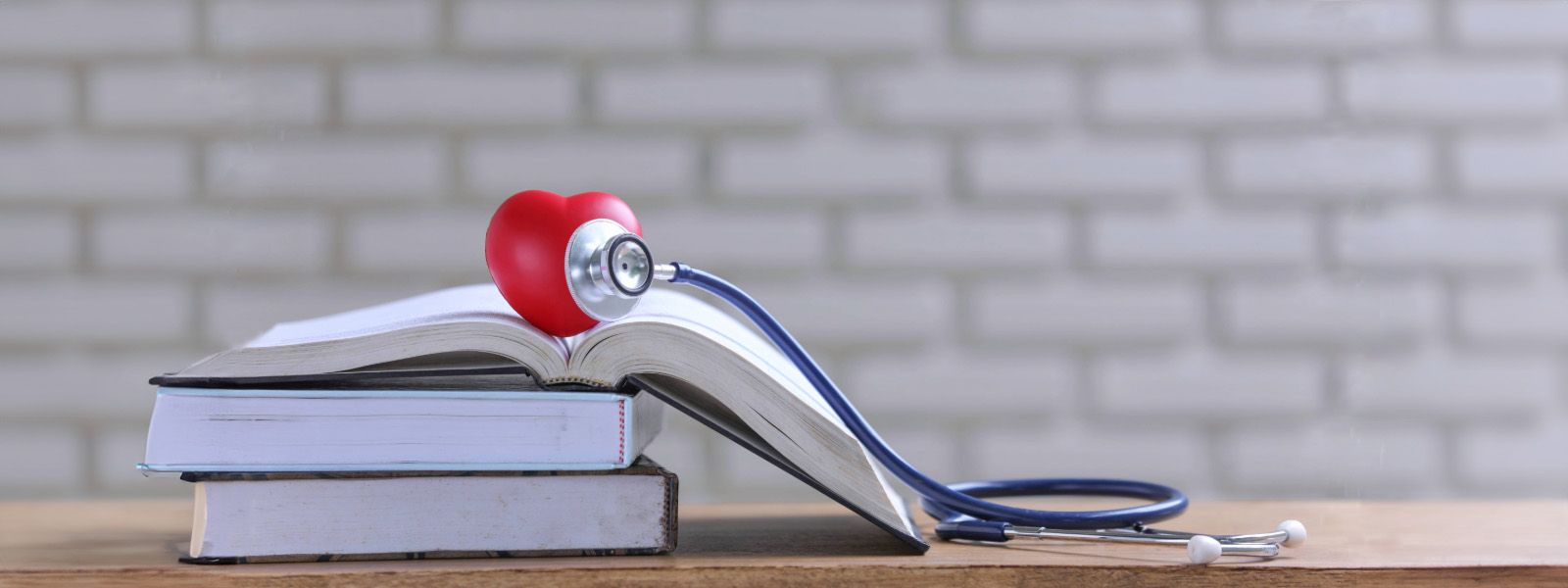
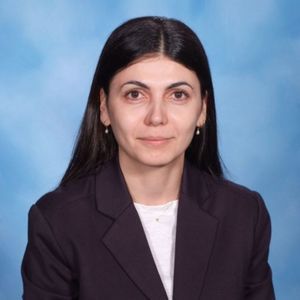
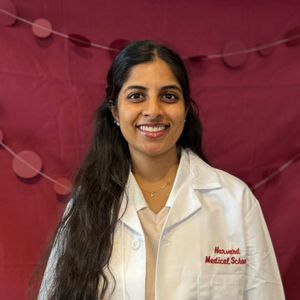
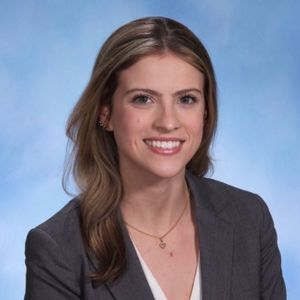 Name: Laura Alvim
Name: Laura Alvim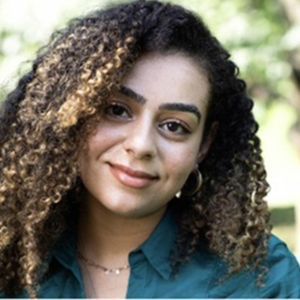
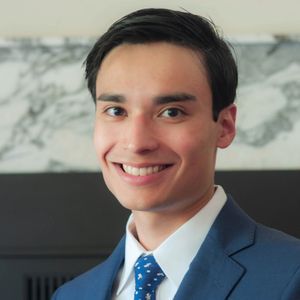
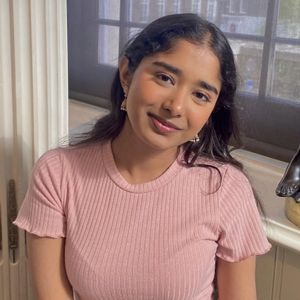
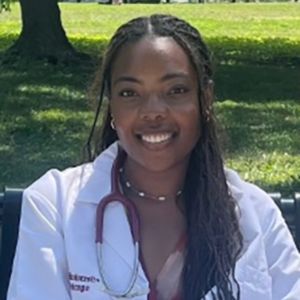

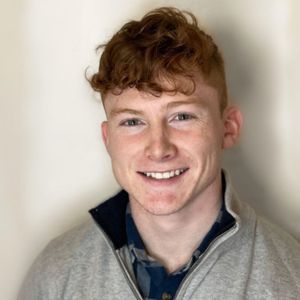
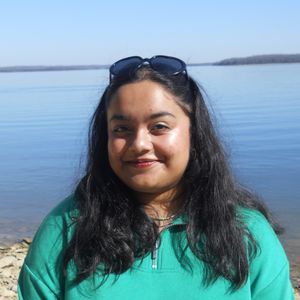
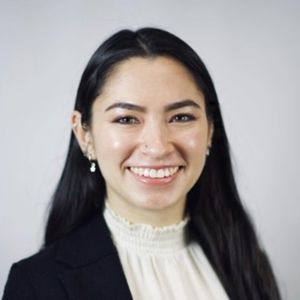
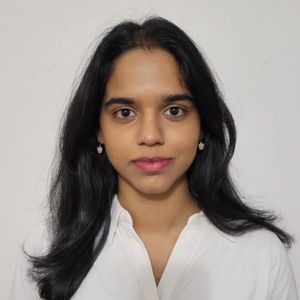
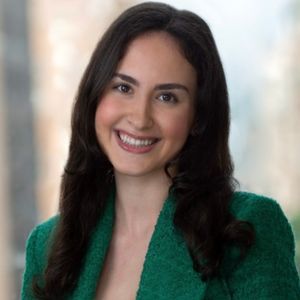
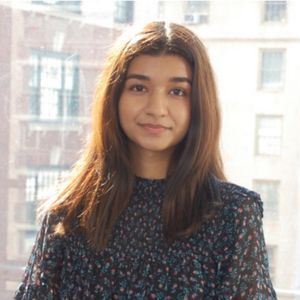
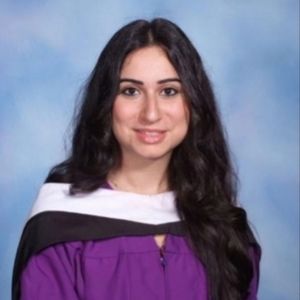
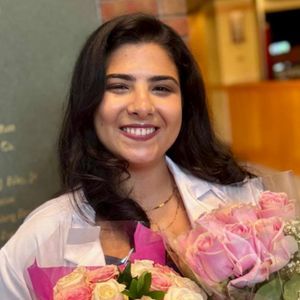
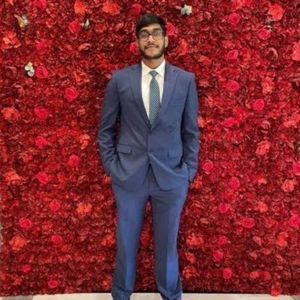
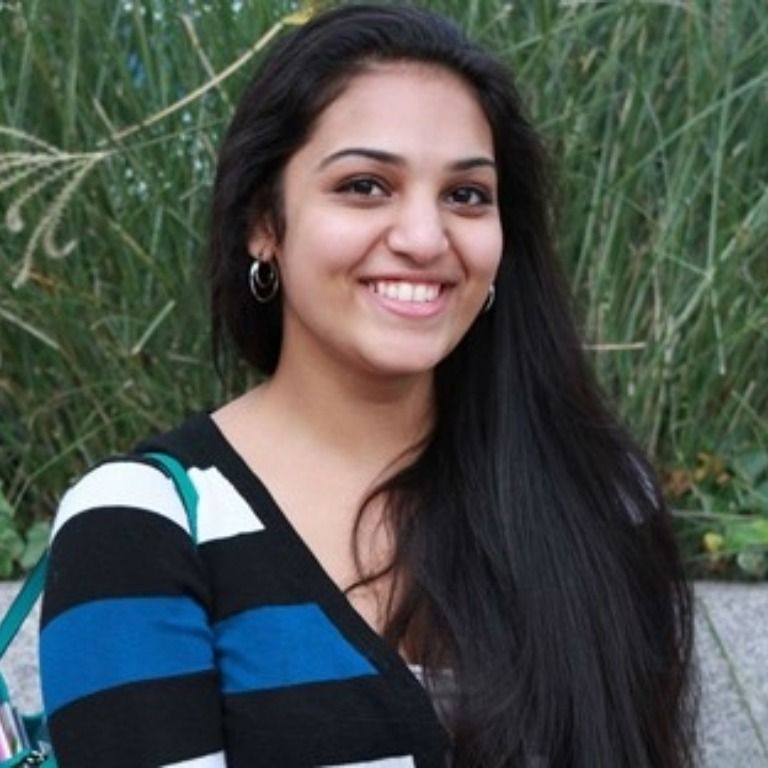
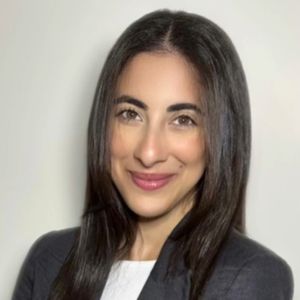
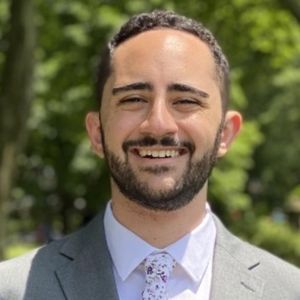
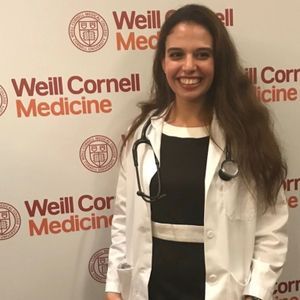
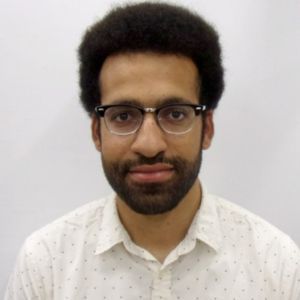
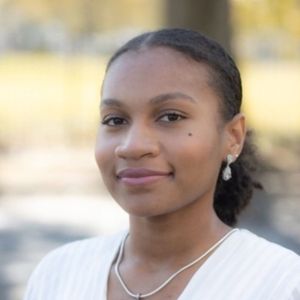
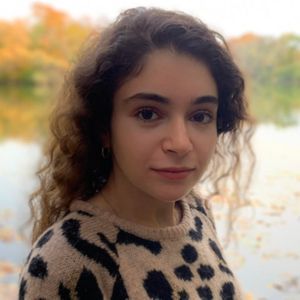
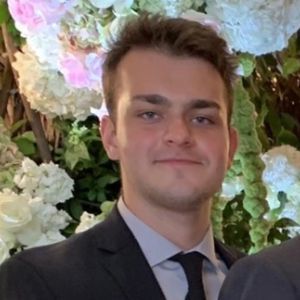
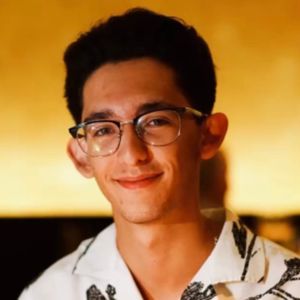
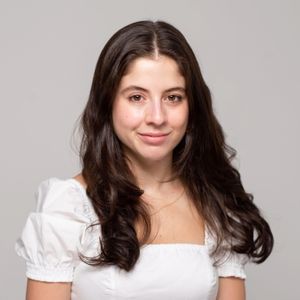
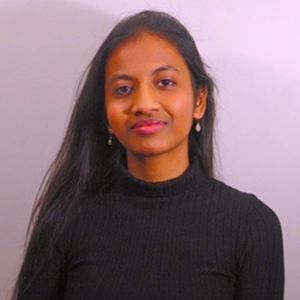
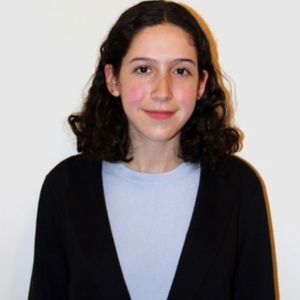
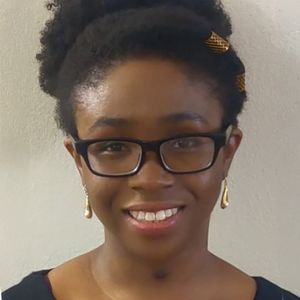
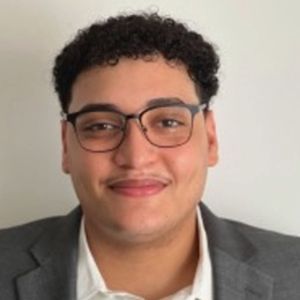
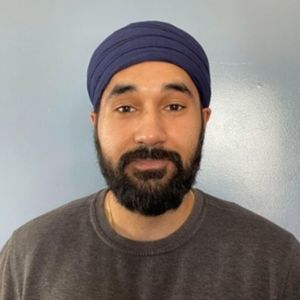
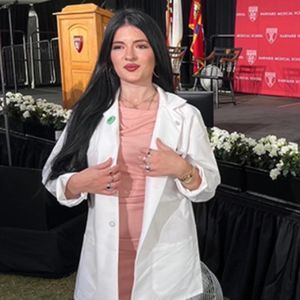
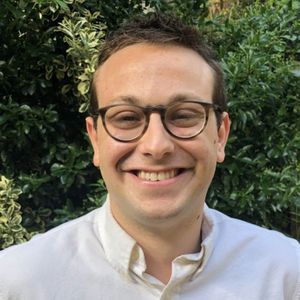 Name: Martin Viola
Name: Martin Viola